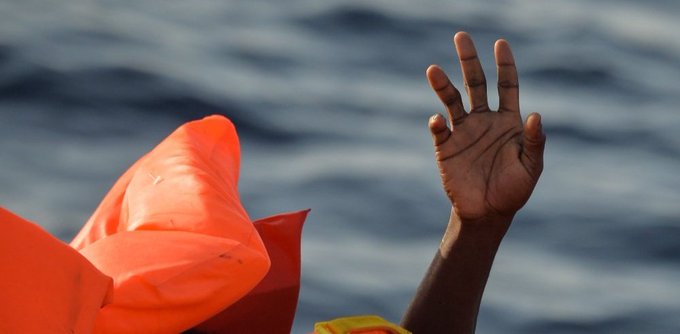Two rescue boats carrying close to 300 refugees capsized in the Mediterranean Sea, 120 km off the coast of Tripoli, Libya. This is the latest in the series of accidents that have claimed the lives of hundreds of refugees from North Africa and West Asia fleeing poverty and war. If the estimated deaths are true, this would also be the biggest refugee boat tragedy this year.
According to reports, 145 people have been rescued so far and over 150 are feared to have drowned. The Libyan Coast Guard that is leading the rescue mission, along with local fisher folk, is still looking for possible survivors.
For the past few years, the Mediterranean Sea has become a major route used by asylum seekers to reach Europe, to escape the desperate conditions back home. Refugees often take to overcrowded, rickety and makeshift boats to transport themselves across the sea, becoming prey to human traffickers who charge them a fortune for getting them across what is among the most dangerous asylum routes in existence.
In 2018 alone, estimates suggested close to 1,500 deaths in the Mediterranean, including a few hundred children and infants. This year, the death count has been 700 so far, not counting the recent accident.
The accident has prompted the United Nations High Commissioner for Refugees (UNHCR), Filippo Grandi, to again call on the European Union (EU) to open safe pathways for the incoming asylum seekers. Grandi has also called EU nations to restart their patrols on the Mediterranean, which were halted earlier this year after member nations were not able to arrive at a mechanism to share refugee seekers.
The UNHCR has also asked the EU to drop its policy of financing the Libyan Coast Guard to intercept and return refugees. According to various reports, this policy pushes them to take up routes that are more dangerous and risky. Ever since the 2011 NATO invasion of Libya, the war-torn North African country has become a major source of asylum seekers and also a major embarkment point for other refugees in the region. This has also given rise to a large human trafficking network.





